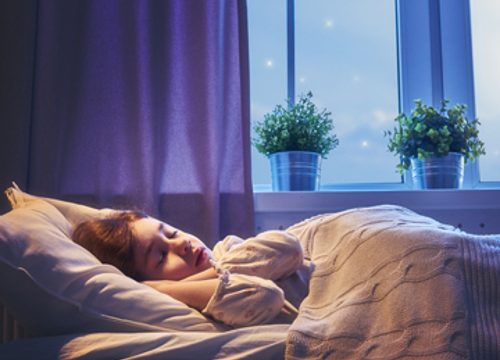
 San Francisco, Marin, and Oakland, CA
San Francisco, Marin, and Oakland, CA
Recent statistics about the prevalence of obstructive sleep apnea in children might keep you awake at night. Although sleep apnea is associated most often with adults, the National Sleep Foundation estimates that as many as 10 to 20 percent of habitually snoring children suffer from this sleep breathing disorder.
Behavioral disorder or something else?
If your child has sleep apnea, then obtaining treatment as soon as possible is crucial. Pursuing preventative measures now will reduce or eliminate the symptoms that develop as a consequence of sleep apnea, including daytime fatigue, irritability, and a greater likelihood of certain chronic conditions such as diabetes, obesity, and depression. Many patients with pediatric sleep apnea also exhibit symptoms similar to an attention deficit disorder such as ADD or ADHD and are misdiagnosed as a result. This means children are prescribed medications to treat these disorders that they actually do not have.
What causes sleep apnea?
Airway problems are the root of any case of sleep apnea, which occurs when there is a partial or complete blockage of the airway during sleep. Also, enlarged soft tissue such as tonsils and adenoids could be to blame for the airway blockage. This impedes or completely interrupts breathing, depriving a person with sleep apnea of quality rest and disrupting the cycle of sleep. The restoration of mind and body during deep sleep is crucial to good health, especially for children and adolescents.
A sleep apnea dentist can treat a case of sleep apnea by addressing the airway issue. Taking steps to maintain an open airway will prevent the blockages that disrupt rest for a sleep apnea patient.
Pediatric sleep apnea, what to look for
The major warning sign for a case of sleep apnea remains loud snoring. This, in combination with some of the effects mentioned above, could mean a sleep breathing disorder exists. If so, your Bay Area sleep apnea dentist can perform a simple evaluation of your child’s airway to determine if any issues exist.
Children who do not have sleep apnea, but appear to be at risk, should be encouraged to practice certain behaviors that can lead to improved breathing and better sleep. These behaviors include taking shallow breaths through the nose, rather than breathing through the mouth; swallowing without relying on the facial or cervical muscles; and striving for the ideal resting posture with lips together, teeth together, and tongue resting gently against the palate.
Sleep Apnea dentist in San Francisco
If your child has sleep apnea, the sleep apnea dentists at Glen Park Dental can help. The necessary course of action will depend on the severity of your child’s sleep apnea, as well as their age. Your Bay Area dentist will assess your child’s airway and may even need to conduct a sleep test to determine the severity of your child’s sleep apnea. From there, a personalized plan can be derived to treat this sleep breathing disorder.
To learn more about our program of sleep apnea dentistry, contact the office of Glen Park Dental at (415) 585-1500 to schedule a consultation.
Glen Park Dental is proud to serve the oral health needs of patients in Marin, Oakland, and San Francisco, California.


